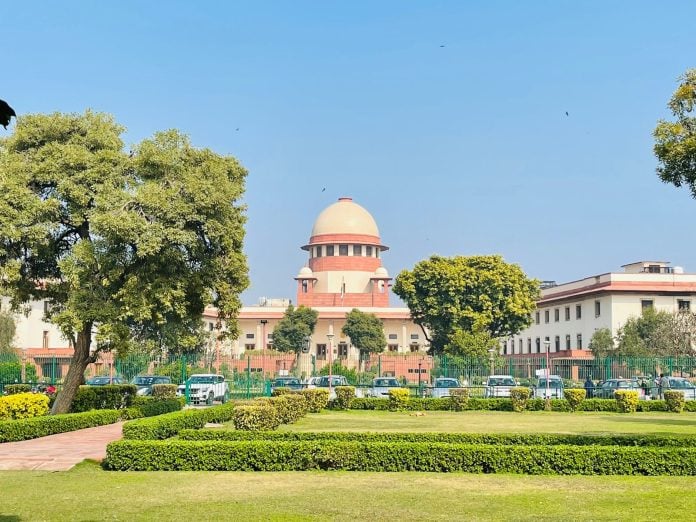The Supreme Court referred the issue related to hearing the accused before imposing death penalty on him to a five-Judge Constitution Bench on Monday, stating that having clarity on granting real and meaningful opportunity of hearing to accused in such cases was important.
The bench of Chief Justice U.U. lalit, Justice S Ravindra Bhat and Justice Sudhanshu Dhulia, while giving the example of Bacchan Singh case, noted that the Court had mandated separate hearing of the accused before imposing death penalty in the case, as per the recommendations of the 48th Law Commission of India.
Stating that there were conflicting judgements on the issue, the Apex Court noted that in all cases where the death penalty was a choice, it was necessary to place mitigating circumstances on record.
It said, however, the mitigating circumstances relating to death sentence could be placed on record only after conviction.
In April 2022, the Supreme Court had registered a suo motu case “In Re Framing Guidelines Regarding Potential Mitigating Circumstances To Be Considered While Imposing Death Sentences.”
While hearing plea by an appellant named Irfan alias Bhayu Mevati, who challenged his death penalty awarded by a trial court and upheld by the Madhya Pradesh High Court, the Apex Court had taken cognisance of lack of uniformity in awarding death sentences and registered the suo motu case.
The case sought to examine how trial courts dealing with death penalty cases could undertake a comprehensive analysis about the accused and the crime, especially in relation to mitigating circumstances, while deciding on whether the death penalty needs to be imposed or not.
The Apex Court was apprised that the analysis and report by the probation officer in such cases did not consider the complete profile of the accused and was likely to be dependent upon the interviews, which would have taken place at the fag end of the trial.
The Bench observed that besides the probation officer, if someone from the defence side was given the facility of interviewing the accused right at the beginning of the trial, a comprehensive analysis could be projected at a stage when the matter was considered from the standpoint of whether or not to impose the capital punishment.


